Stephan Winklmeier, PhD

Effect of IVIG on autoreactive B Cells: Insights from paediatric and adult myelin oligodendrocyte glycoprotein antibody‑associated disease (MOGAD)
Project summary
Autoantibodies targeting myelin oligodendrocyte glycoprotein (MOG) are essential for distinguishing MOG-antibody-associated disease (MOGAD) from classical multiple sclerosis and related demyelinating disorders. MOG is a transmembrane glycoprotein expressed on the outermost layer of the myelin sheath in the central nervous system, where it is thought to play a crucial role in myelin integrity and immune regulation. Due to its surface accessibility, MOG serves as a key antigenic target in the autoimmune demyelinating disease MOGAD. MOGAD is a rare autoimmune demyelinating disease, which exhibits a biphasic age distribution, primarily affecting children aged 5–10 years and adults aged 20–45 years. The detection of MOG antibodies relies on a highly specific cell-based assay, which utilizes mammalian cells expressing MOG on their surface. MOG antibodies do not only serve as important biomarkers for disease diagnosis but also play a role in the pathogenesis. Understanding the pathogenic pathways is crucial for targeted therapeutic interventions to mitigate disease severity and prevent relapses. Currently, no approved treatment exists for MOGAD; however, several studies suggest a beneficial effect of IVIG in managing the disease. A large international retrospective cohort study demonstrated that maintenance IVIG therapy significantly reduced the annualized relapse rate in MOGAD patients. MOGAD appears to be a heterogeneous disease, as evidenced also by our findings, with significant variability in the abundance of circulating MOG-specific B cells in the blood of patients. Understanding the effects of IVIG on key immunological parameters is of central importance, including the frequency of circulating MOG-specific B cells, serum MOG IgG titers, and MOG antibody-mediated effector functions. By elucidating how IVIG influences these immune responses, we aim to provide critical insights into its therapeutic potential in MOGAD.
Biographical sketch
Stephan Winklmeier is a neuroimmunologist with extensive research experience in multiple sclerosis (MS) and related disorders. He studied biology and biochemistry at Ludwig Maximilian University of Munich. During his Master's thesis at Harvard Medical School in Boston, he gained valuable knowledge in stem cell research. At the Technical University of Munich, he broadened his skills in material science, working on neural implants.
He then pursued a PhD in biology under the supervision of Prof. Dr. Edgar Meinl at the Clinical Institute of Neuroimmunology at LMU, establishing an innovative platform to elucidate autoreactive B cells in myelin oligodendrocyte glycoprotein antibody-associated disease (MOGAD). This platform was successfully applied during his postdoctoral research to SARS-CoV-2 and paediatric MOGAD, shedding light on underlying mechanisms. Starting in September 2025, Stephan Winklmeier will continue his research as a Postdoc in the Division of Translational Immunology, Department of Medicine 3, in the group of PD Dr. Simone Mader at Friedrich-Alexander University (FAU) Erlangen-Nürnberg. He focuses on studying brain-reactive B cells, their role in brain damage, and the effects of various treatments on the autoimmune response, as part of a collaborative multi-center initiative. Recognized for his contributions, he is a valuable asset and an active member of the MOGAD community. His work has been funded by the Medical & Clinician Scientist Program and the Junior Researcher Fund from LMUexcellent. With over 15 publications in peer-reviewed journals, Stephan Winklmeier has made significant contributions to the MOGAD field.

